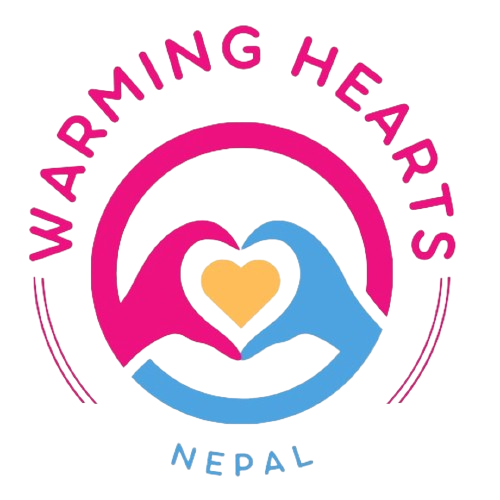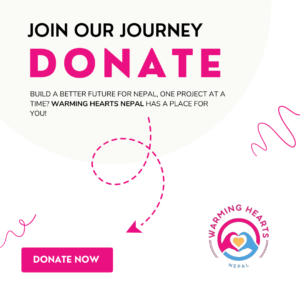“If only I could build a home whose ashes could still offer us shelter,” they must have thought when they walked atop the ashes of their houses, scattering and dispersing them, and leaving their footprints behind, some of the gray ash sticking themselves on their dark, dirty feet.
The residents of Matihani Municipality in Mahottari are facing significant devastation as a severe fire engulfed the Jaralhawa Gachhi village, reducing over 100 homes to ashes. It took seven hours for the State Police Office in Janakpur, in collaboration with the army, police, armed police, and local residents, to bring the fire under control after it started. The fire has stopped but the consequential food and shelter scarcity hasn’t.
When Warming Hearts Nepal (WHN) reached the site of the community, we discovered that the devastation extended beyond the loss of houses, clothes, and cattle. Every infrastructure that held the hopes of the community had been consumed by the flames. Their grief was doubled by the hunger and emptiness in their stomachs. WHN, in coordination with the Nepal Army, has been providing meals to the 15o families affected by the disaster. The daily meals have been providing temporary relief to the victims but several works need to be done to fully facilitate the rebuilding of their life.
There is a need for on-site psycho-social counseling for the victims. The ashes of their houses remain grounded, unable to be swept away by the blowing wind and mingling with the fertile soil. It’s as if the grieving tears of the residents anchor them in place, holding them down amidst the devastation. Furthermore, an on-site medical camp was conducted through collaboration with local hospitals and clinics to assess and address the healthcare needs of the victims.
This included specific health check-ups tailored to fire victims and providing necessary medications. To further the efforts and support the residents of Matihani Municipality effectively, we are seeking funding to expand their daily meal campaign to reach more victims for an extended period until food scarcity is alleviated, conduct a comprehensive day-long medical camp to provide thorough health assessments, and necessary medications to all victims, especially focusing on vulnerable groups such as children and elders, implement an effective psycho-social counseling campaign to address the grief and mental health needs of the community and provide new textbooks and copies to children to facilitate the restoration of the education sector in the municipality.
Surprisingly, there aren’t many NGOs and municipality representatives working on the ground with the victims. Help from third-party donors will be crucial to further the efforts the NGOs are aiming to make to help the victims.


